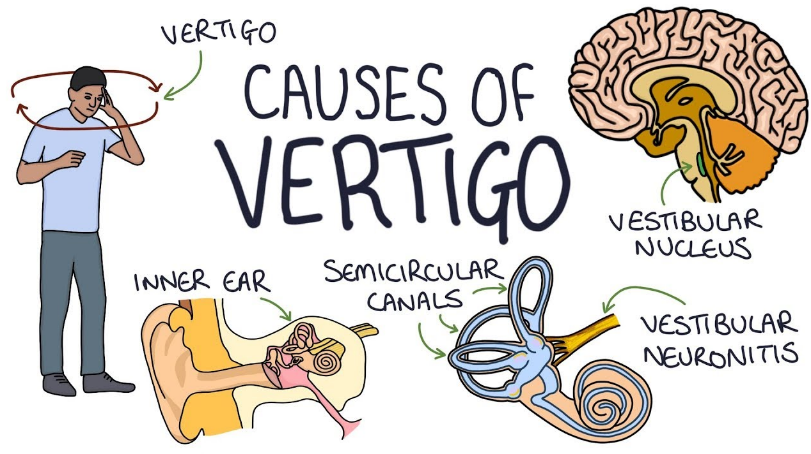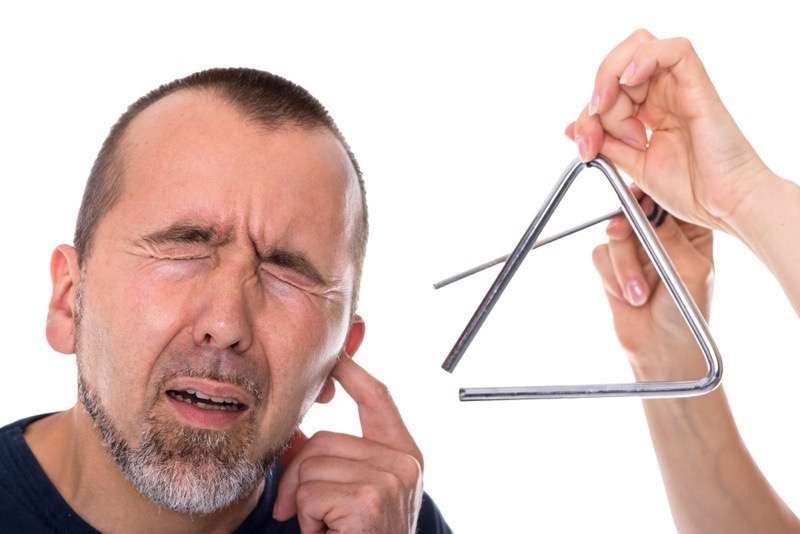
Hearing loss refers to a reduced ability to hear sounds and is a common condition that can affect individuals of all ages. There are two types of deafness, conductive and sensorineural. Conductive hearing loss has physical problems with the movement of the sound w-=5ave through the ear causing conductive hearing losses result. An example of conductive hearing loss is blockage of the ear canal. In sensorineural hearing loss problem lies in nerve conduction.

Only 10 out of 15 cases have identifiable deafness causes. Most common hearing loss causes are infection, trauma, autoimmunity drugs, blood circulation problems tumors, neurologic problems, and problems like Meniere disease. Meniere's disease includes hearing loss and tinnitus. Genetic causes of hearing loss in children need to be ruled out. Hearing loss and dementia may coexist in the latter age of patients. Deafness treatment is treating the cause. But in cases where the cause is not known, steroids are prescribed. Hearing loss cure depends upon the cause.
Severe mixed hearing loss is a type of bilateral hearing loss where both the inner and outer ear is affected, leading to difficulty in hearing sounds at different frequencies. This condition can be caused by various factors such as age, noise exposure, infections, or genetics. The treatment options for severe mixed hearing loss depend on the severity of the condition and the individual's specific needs. Hard-of-hearing treatment can include the use of hearing aids, cochlear implants, or bone conduction devices. High-frequency hearing loss treatment can involve frequency-lowering hearing aids or cochlear implants designed to provide better access to high-pitched sounds. Mild hearing loss treatment may involve hearing aids or assistive listening devices, while sudden hearing loss treatment may require immediate medical attention. New treatments for sudden hearing loss include medications such as steroids or hyperbaric oxygen therapy. One ear deafness treatment option can include hearing aids, cochlear implants, or bone conduction devices. Permanent hearing loss treatment may involve the use of hearing aids, cochlear implants, or other devices designed to help individuals with hearing loss communicate effectively. Unilateral hearing loss treatment options include hearing aids, bone conduction devices, or cochlear implants, depending on the specific needs of the individual. Moderate hearing loss treatment options may include hearing aids or assistive listening devices. Overall, the treatment of hearing loss depends on the type, severity, and underlying cause of the condition, and it is important to seek medical advice from a qualified professional.
Similarly, Ayurvedic medicine may offer some hearing loss natural remedies for hearing loss, including the use of herbs and dietary supplements. However, the effectiveness of these treatments has not been well-studied, and it is important to consult with a healthcare professional before trying any alternative therapies. Currently, there is no known cure for deafness or sensorineural hearing loss cure, which is caused by damage to the inner ear or auditory nerve. However, various medical and technological interventions, such as hearing aids and cochlear implants, can help individuals with hearing loss to communicate effectively and improve their quality of life. It is important to seek the advice of a qualified audiologist or healthcare professional for a proper diagnosis and treatment plan. Less
Acupuncture may provide a valuable, effective approach to reduce lengthy recovery rates due to abducens palsy.
"This systematic review and meta-analysis based on current evidence suggested that acupuncture may be more effective in the effectiveness and improvement of clinical symptoms and average blood flow velocity of the vertebral-basilar artery compared with conventional medicine therapy for CV (Cervical Vertigo)."
"a pilot cohort study reports that - "Acupuncture demonstrates a significant immediate effect in reducing discomforts and VAS of both dizziness and vertigo. This study provides clinical evidence on the efficacy and safety of acupuncture to treat dizziness and vertigo in the emergency department."
There are various treatments available for hearing loss, but the latest treatments include the following:
Gene therapy, Cochlear implants, Stem cell therapy, and Drug therapy are still in the experimental phase and may not be widely available yet. It's essential to talk to an audiologist or healthcare provider to determine the most appropriate treatment for your hearing loss. Acupuncture treatment has proved again and again to be useful.
Sensorineural hearing loss, which is caused by damage to the inner ear or nerve pathways, is often permanent and cannot be completely corrected. However, there are several treatments available to manage and improve hearing, including hearing aids, cochlear implants, and assistive listening devices.
Hearing aids are the most common treatment for sensorineural hearing loss. They amplify sound and help individuals with hearing loss better distinguish speech and other sounds in their environment. Cochlear implants are another treatment option for individuals with severe to profound hearing loss who are not able to benefit from hearing aids.
Avoid loud noises. Keep your ears dry. Don't Smoke. Be cautious with medications. Be aware of excessive ear wax build-up. Avoid cotton swabs and other small objects. Take supplements and vitamins for better hearing health. Protect your ears.
Vertigo is a personal feeling of rocking, rotation, or the things spinning, experienced even when everything is perfectly still. Vertigo is the sensation of movement that is distinct from dizziness, light-headedness, and unsteadiness. Vertigo can be caused by various conditions, and can also be due to central (brain/ spinal cord) migraines, head injuries, or peripheral (ear) causes. The inner ear can become inflamed creating conditions like labyrinthitis leading to Benign Paroxysmal, and Positional Vertigo; also called BPPV. Meniere's disease presents with vertigo which is accompanied by deafness and tinnitus. Viral infection of inner ear lead to vestibular neuritis or labyrinthitis lead to vertigo. The infection causes inflammation in the inner ear around nerves which can cause inner ear vertigo which otherwise is important for helping the body sense balance.
Vertigo is a feeling that one is dizzily turning around or that one’s surroundings are dizzily turning about him. The vertigo attack or dizzy spells may be associated with light-headedness, fainting, nausea, or vomiting. Inner ear vertigo with symptoms of feeling dizzy may be accompanied by abnormal eye movements called nystagmus. Benign Paroxysmal Positional Vertigo (BPPV) is a common cause of vertigo, which is a spinning sensation that can cause dizziness and balance problems. The symptoms of BPPV can include brief episodes of vertigo that occur with changes in head position, such as rolling over in bed or standing up. Other symptoms may include nausea, vomiting, and unsteadiness. If symptoms of vertigo last for more than a few days, suspicion of stroke or CNS problems need to be suspected.
Causes of dizziness can be a sudden drop in blood pressure, anaemia and hypo-glycemia (low blood sugar). Dizziness treatment will be according to the cause. However, vertigo is a distinct entity from light-headedness causes of which can be heart muscle disease, decrease in blood volume, and anxiety disorders. BPPV is caused by small calcium crystals that become dislodged and move into the inner ear canals, where they can interfere with the ear's normal balance function. Factors that can contribute to BPPV include head injuries, inner ear infections, or simply aging.

Vestibular rehab may be recommended if you have recurrent bouts of vertigo. It helps train your other senses to compensate for vertigo. American Academy of Neurology recommends some vertigo treatment maneuvers or specific vertigo exercises of the head and body for BPPV. Vertigo treatment exercise is done to move the calcium deposits out of the canal into an inner ear chamber so they can be absorbed by the body. The vertigo treatment exercise video can guide you through the movements. Vertigo treatment video from expert doctors is safe and often effective.
Ear balance problems and balance disorders can cause a range of symptoms, including dizziness, lightheadedness, and vertigo. These issues can be caused by various factors, such as inner ear infections, head injuries, or Meniere's disease. One type of balance disorder that can be treated with canalith repositioning is Benign Paroxysmal Positional Vertigo (BPPV), which occurs when small calcium crystals in the inner ear become dislodged and move into the ear's canals. Other causes of balance problems, such as seasickness, can also be managed with appropriate treatment and lifestyle changes.
Other home remedies for dizziness include drinking plenty of water to stay hydrated, getting enough, and avoiding triggers such as caffeine and alcohol. BPPV treatment at home with canalith repositioning maneuvers can also be useful. These maneuvers involve a series of head and body movements that can help reposition the calcium crystals in the inner ear, which can cause vertigo. However, it is important to consult a healthcare provider before attempting any home treatments, especially if you are unsure of the underlying cause of your symptoms. In some cases, a vertigo cure can occur with home vertigo treatment.
Common motion sickness medicines include antihistamines such as dimenhydrinate or meclizine, which can help reduce nausea and vomiting. Vertigo medicines may include antihistamines, such as meclizine, or benzodiazepines, such as diazepam, which can help reduce anxiety and promote relaxation.
Car sickness medicine can also include over-the-counter antihistamines or prescription medications such as scopolamine patches. Himalaya medicine for vertigo offers a range of herbal remedies and supplements, including products that may help alleviate vertigo symptoms. The cure for dizziness depends on the underlying cause and may range from lifestyle changes and home remedies to medical intervention and prescription medications.
Vertigo homeopathic medicine such as Cocculus and conium may help alleviate vertigo symptoms by addressing underlying imbalances in the body. Vertigo ayurvedic treatment includes herbal remedies and lifestyle changes such as yoga, meditation, and dietary modifications. Some herbs commonly used in Ayurvedic medicine for vertigo include ginger, ashwagandha, and Brahmi. However, it is important to note that these alternative treatments should not be used as a substitute for medical advice or conventional treatments, especially for severe cases of vertigo or dizziness. Acupressure treatment for vertigo has a limited scope.
Car sickness medicine can also include over-the-counter antihistamines or prescription medications such as scopolamine patches. Himalaya medicine for vertigo offers a range of herbal remedies and supplements, including products that may help alleviate vertigo symptoms. The cure for dizziness depends on the underlying cause and may range from lifestyle changes and home remedies to medical intervention and prescription medications.
Vertigo homeopathic medicine such as Cocculus and conium may help alleviate vertigo symptoms by addressing underlying imbalances in the body. Vertigo ayurvedic treatment includes herbal remedies and lifestyle changes such as yoga, meditation, and dietary modifications. Some herbs commonly used in Ayurvedic medicine for vertigo include ginger, ashwagandha, and Brahmi. However, it is important to note that these alternative treatments should not be used as a substitute for medical advice or conventional treatments, especially for severe cases of vertigo or dizziness. Acupressure treatment for vertigo has a limited scope.
Acupuncture demonstrates a asignificant immediate effect in reducing discomfort and VAS of both dizziness and vertigo. This study provides clinical evidence on the efficacy and safety of acupuncture to treat dizziness and vertigo in the emergency department.
"This systematic review and meta-analysis based on current evidence suggested that acupuncture may be more effective in the effectiveness and improvement of clinical symptoms and average blood flow velocity of the vertebral-basilar artery compared with conventional medicine therapy for CV (Cervical Vertigo)."
"a pilot cohort study reports that - "Acupuncture demonstrates a significant immediate effect in reducing discomforts and VAS of both dizziness and vertigo. This study provides clinical evidence on the efficacy and safety of acupuncture to treat dizziness and vertigo in the emergency department."
While some cases of vertigo may resolve on their own without treatment, others may persist for extended periods, particularly in individuals with Ménière's disease or other underlying conditions. Fortunately, there are several treatment options available for certain causes of vertigo. For instance, a series of head movements called the Epley maneuver is commonly used to address benign paroxysmal positional vertigo (BPPV). This technique can help to reposition the displaced inner ear crystals that cause BPPV, providing relief from the symptoms. Other treatments for vertigo may include medications, such as prochlorperazine or antihistamines, and vestibular rehabilitation therapy (VRT), which can improve balance and reduce dizziness over time. It's essential to consult a healthcare professional for an accurate diagnosis and appropriate treatment plan if experiencing vertigo symptoms.

If you're experiencing ringing ears or tinnitus, some home remedies may provide relief. One remedy for tinnitus at home is to avoid exposure to loud noises, which can aggravate the condition. Another remedy is to practice relaxation techniques such as yoga or meditation, as stress can worsen tinnitus symptoms. Some people find relief by using white noise machines or listening to soothing music. Additionally, certain dietary changes such as reducing caffeine and salt intake may also help. While these home remedies for ringing ears can be helpful, it's important to consult with a healthcare professional for the proper diagnosis and treatment of tinnitus.
There are several options available for the treatment of tinnitus, including sound therapy, medication, and tinnitus retraining therapy. Sound therapy is one of the best tinnitus treatments, as it can help to reduce the perception of ringing in the ears. Ear ringing remedies can include the use of white noise machines or listening to soothing music. A new tinnitus treatment called tinnitus retraining therapy is a form of sound therapy that involves retraining the brain to ignore the ringing sound in the ears.
Tinnitus is a condition characterized by the perception of sound in the absence of an external auditory stimulus. It can manifest as ringing, buzzing, hissing, or other sounds and can be heard in one or both ears. Tinnitus can be temporary or chronic and can be caused by a variety of factors including exposure to loud noise, certain medications, ear infections, and neurological disorders.Tinnitus retraining therapy costs may vary, and it's best to check with your healthcare provider for options near you. Pulsatile tinnitus treatment can involve addressing underlying health conditions that may be causing the ringing sound in the ear. Medications such as antidepressants and antianxiety drugs have also been used to treat tinnitus. Tinnitus ear drops and tinnitus masking hearing aids can also help manage the symptoms. plan for your specific case of tinnitus.
The best tinnitus sound therapy is considered one of the best tinnitus treatments and can involve the use of white noise machines, music therapy, or tinnitus retraining therapy. Ringing sound in ears treatment or retraining therapy retraining the brain to ignore them, and the cost and availability of this treatment may vary. Some med for tinnitus may also help manage symptoms. Some of the best drugs for tinnitus include antidepressants and antianxiety medicines.
When searching for a tinnitus doctor near me, it's important to consider factors such as their experience with tinnitus patients and their availability for appointments. A tinnitus clinic near me may offer specialized services such as tinnitus retraining therapy, which can help to alleviate symptoms over time. Some people may also consider homeopathic medicines for tinnitus as an alternative treatment option, although it's important to consult with a healthcare professional before trying any new treatments.
There is currently no known cure for tinnitus. While there are many treatments available that can help manage symptoms, there is no single treatment that is guaranteed to cure tinnitus. Some people have claimed that ‘massage cured my tinnitus’ massage may help but not cure tinnitus. It's important to approach any treatment for tinnitus with realistic expectations, as the condition can be chronic and may require ongoing management. While tinnitus can be a challenging condition to live with, it is possible to find relief with the help of a healthcare professional and through the use of various treatments.
“Researchers find acupuncture effective for the alleviation of tinnitus. This is significant given the intractability associated with this disorder. A research team in Sichuan, China, achieved significant positive patient outcomes by employing the use of electrical stimulation to acupuncture points. Compared with conventional manual acupuncture therapy, the addition of electro-acupuncture to the treatment protocol increased clinical effectiveness for the treatment of tinnitus by 25.1%. Conventional manual acupuncture achieved a 64.5% total effective rate; however, electro-acupuncture achieved an 89.6% total effective rate.”
Low doses of anti-anxiety medications such as Valium or antidepressants have been found to help reduce tinnitus for certain individuals. In some cases, a steroid combined with an anti-anxiety medication called alprazolam, which is inserted into the middle ear, has also been shown to be effective.
While there is no guaranteed cure for tinnitus, there are some lifestyle adjustments and home remedies that can help alleviate the symptoms and make them less bothersome. Although some people may never fully eliminate their tinnitus, they may become accustomed to it and begin to notice it less over time. Simple changes, such as reducing exposure to loud noises, managing stress levels, and practicing relaxation techniques like yoga or meditation, can all help in minimizing the impact of tinnitus. Additionally, avoiding alcohol and tobacco, getting enough rest, and incorporating exercise into one's daily routine are other lifestyle modifications that may contribute to improved symptoms.
You can search for “tinnitus doctor near me” or “tinnitus clinic near me” or tinnitus specialists, audiologists, or ENT doctors in your area by using Google search engines. You may also ask for referrals from your primary care physician or seek recommendations from friends and family members who have experience with tinnitus treatment. It's important to research potential healthcare providers, read reviews, and consider factors such as experience and availability before making an appointment.